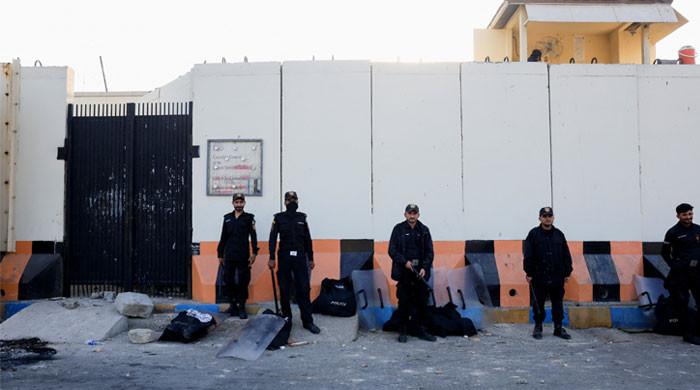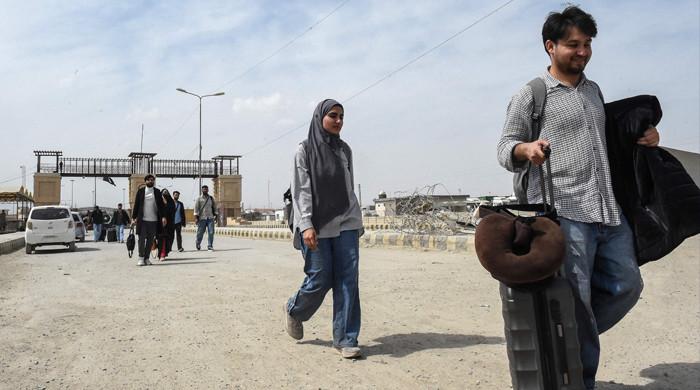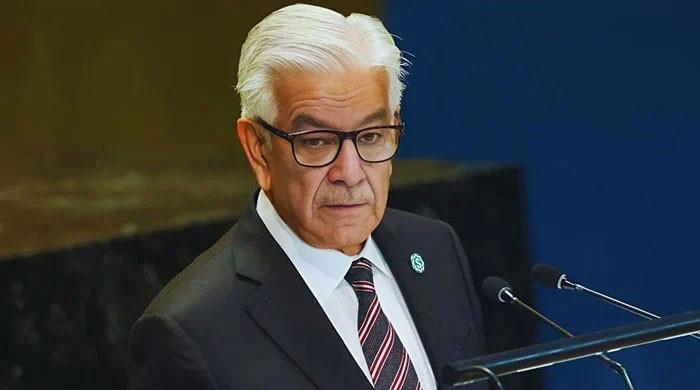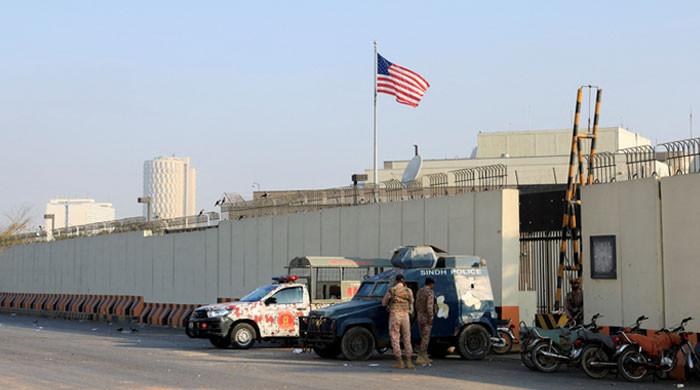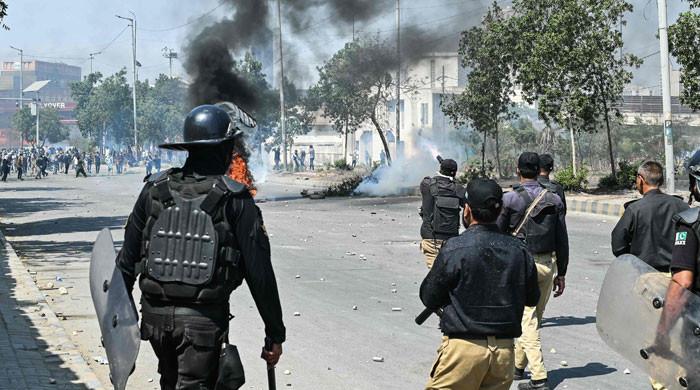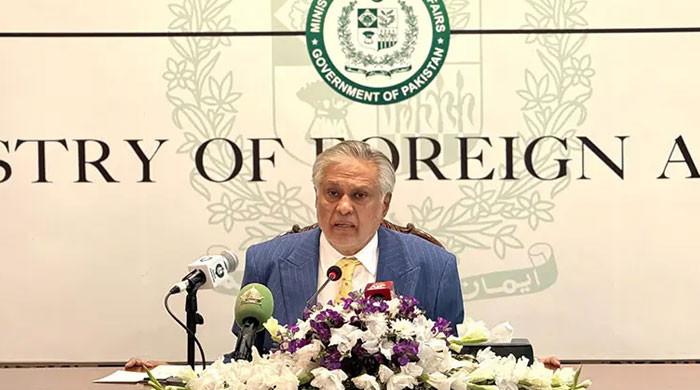What is Pakistan’s COVID-19 vaccination plan?
It is troubling that when most regional countries shifted into top gear to vaccinate their population on top priority, we did not seem to have a procurement plan
April 08, 2021
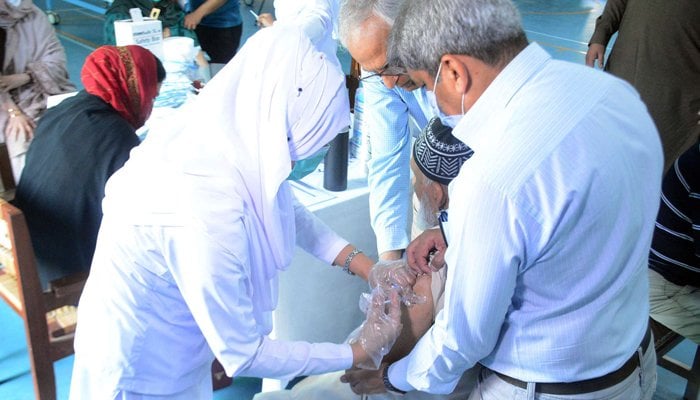
Pakistan seems to be caught on the wrong foot when it comes to its coronavirus vaccination drive, especially when a highly transmissible variant of the deadly illness is sweeping through the country.
If the course is not corrected, this could result in a breakdown of normal life and losses in production, exports, and foreign investment running into billions of dollars.
Even more dangerously, it could result in more human lives being lost.
Read more: Getting a coronavirus vaccine in Pakistan: What you should know
For one reason or another, since the onset of the pandemic last year, vaccination has not been given due importance in Pakistan. Last April, the Chinese company Sinopharm approached Pakistan to collaborate on clinical trials for a COVID-19 vaccine it was producing, as per a letter seen by Geo.tv.
It is unclear why officials did not take up the opportunity. Major General Aamer Ikram, the executive director at the National Institute of Health, did not respond to Geo.tv’s repeated requests for comments.
However, in September human trials were held across Pakistan of another China-made vaccine, by the company CanSino.
Fortunately, in February, China gifted Pakistan 1.2 million doses of the Sinopharm vaccine, which arrived in batches, and essentially kicked off the country’s inoculation drive.
Pakistan is at the moment vaccinating its healthcare workers and its elderly. But as the drive moves forward to include more age groups, it is unclear where the next tranche of vaccines will arrive.
The country is guaranteed under the global COVAX platform to receive over 14 million doses of vaccine in the first phase, free of cost. However, there have been delays in production of the drug, which have in turn has postponed distribution to countries, including to Pakistan.
It is troubling that when most regional and developing countries shifted into top gear to vaccinate their population on top priority, we did not seem to have a procurement plan.
Had the Chinese government not stepped in, would Pakistan still be waiting to vaccinate its people? It is important to note here that only last month did Pakistan sign a deal to procure close to seven million doses of vaccine from Chinese pharmaceuticals.
If Pakistan plans to vaccinate at least 70% of its population, over the age of 18 years, it would need at least 140 million doses, considering that most vaccines require two-doses to offer full immunization. Have officials placed enough orders?
Another issue is that the government has not done enough to convince people to get the jab. As per media reports, registration amongst healthcare workers and the elderly has been slow. On April 6, federal minister Asad Umar tweeted that a total of one million people had been vaccinated in the country. Most have only received a single dose.
The numbers are low, when compared to other countries. In Bangladesh, over five million people had received the first dose until Wednesday. Bangladesh is using the Oxford University-AstraZeneca vaccine. While in India, over 84 million Covid vaccine doses have been administered.
Undeniably, Pakistan had an excellent head start during the pandemic. Measures taken by the National Command Operations Center and the federal government reduced the number of daily cases in August. Even the State Bank was able to forecast 3% growth in GDP for FY 20-21 in its latest monetary policy statement, against 1.5% forecast early on.
But overconfidence, coupled with lack of monitoring and timely decisions, deteriorated the situation. Cases are once against spiking in the country especially in its most populous province Punjab.
Last week, the UK put Pakistan on the red list with over 40 other countries. The UK after May 17 will allow foreign entrants from countries depending on their percentage of vaccinated population, infection rate, emerging new variants, scientific data, and capability to detect new variants.
Around 50 countries have already made arrangements to cover their entire population. While Pakistan so far has only arranged vaccines for 5% of its population. What about the rest?
Read more: Pakistan crosses 1 million coronavirus vaccine doses mark
If the country wants to speed up its vaccination drive it will need to engage with the Chinese leadership for supply of additional volumes of vaccines at best possible price. A similar Government to Government (G2G) round is needed with the Russian government.
The opposition political parties recently in the Senate passed a befitting resolution urging the government to supply free coronavirus vaccines to its people, as people are perturbed by the high prices charged by private companies for the imported Russian vaccine which allows a 40% margin on imported drugs.
As per a count by Bloomberg, 9.60 billion doses of the lifesaving vaccine have already been reserved, mostly by rich countries. That amount is enough to cover half the world’s population if the shots were distributed evenly.
It is an unfair world out there, but Pakistan must look after its own.




